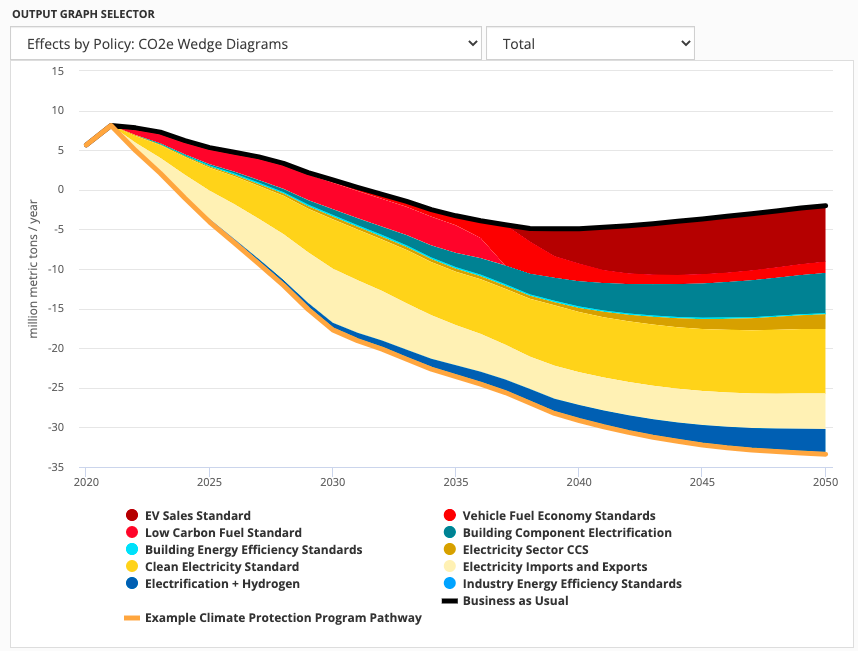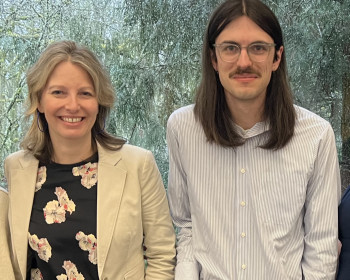GEI Celebrates New Modeling Tool That Makes Evaluation of Climate Action Strategies Accessible to All
Thanks to the new Energy Policy Simulator (EPS) released by Energy Innovation, Oregon now has an incredibly useful modeling tool for policymakers to compare the outcomes and impacts from a wide variety of climate and energy policies. Try the tool here!
Open gallery

Last week, the Intergovernmental Panel on Climate Change released a report on the impacts of climate change, underscoring yet again the urgent need to act quickly and decisively to address the crisis. State and local policies to reduce greenhouse gas emissions and equitably transition our energy and transportation systems are now more critical than ever, and given the urgency of the climate crisis, we should prioritize strategies that provide the greatest benefits to the climate and communities.
Thanks to the new Energy Policy Simulator (EPS) released by Energy Innovation, Oregon now has an incredibly useful modeling tool for policymakers to compare the outcomes and impacts from a wide variety of climate and energy policies. The EPS is an open-source model that estimates the environmental, economic, and public health impacts of hundreds of climate and energy policies. It also helps answer some of the fundamental questions that decision makers face by projecting how various policy mechanisms will impact key outcomes over time. The model also allows users to compare outcomes and impacts from different policy scenarios, and adjust policy parameters and sensitivities to examine how different policy designs might affect desired outcomes.
The EPS includes five policy scenarios created by Energy Innovation that reflect Oregon’s existing policy frameworks and realistic real-world conditions. Users can compare the estimated impacts of these five policy scenarios on a variety of key indicators, such as emissions, economic costs and savings, jobs, public health, fuel use, and more. The EPS also allows users to adjust the model’s assumptions and sensitivities that apply to these five policy scenarios, or create their own scenarios by selecting a customized suite of policies to run through the model. GEI helped Energy Innovation adapt its tool to reflect some of the unique features of Oregon’s policy landscape.
The EPS is free to use and does not require users to download any software or applications. We encourage policymakers, advocates, researchers, and interested members of the public to explore this incredibly valuable tool for informing smart climate policy decisions in Oregon.
Contact Amy Schlusser at ars@lclark.edu with questions about the EPS or any of the policies reflected in the tool.
Try the tool here.

More Green Energy Institute Stories
Green Energy is located in Wood Hall on the Law Campus.
email gei@lclark.edu
Director
Carra Sahler
Green Energy
Lewis & Clark Law School
10101 S. Terwilliger Boulevard MSC
Portland OR 97219

